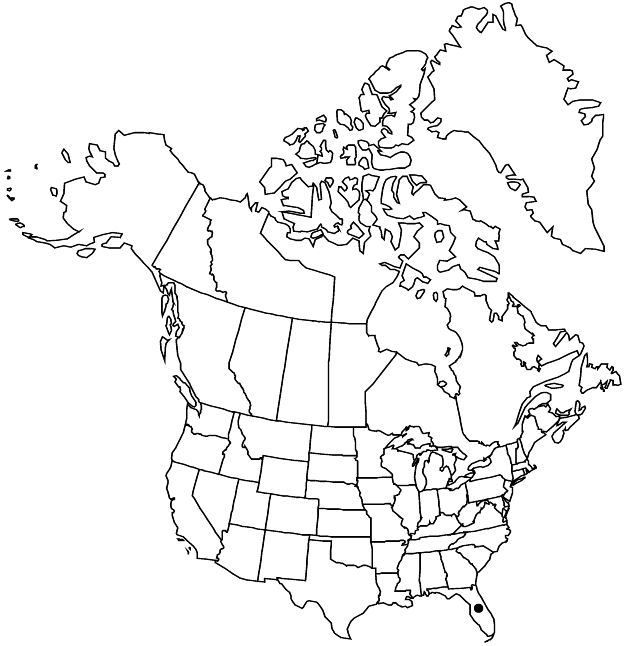Difference between revisions of "Linum carteri var. carteri"
FNA>Volume Importer |
imported>Volume Importer |
||
| Line 50: | Line 50: | ||
|publication year= | |publication year= | ||
|special status=Endemic;Conservation concern | |special status=Endemic;Conservation concern | ||
| − | |source xml=https:// | + | |source xml=https://bibilujan@bitbucket.org/aafc-mbb/fna-data-curation.git/src/bb6b7e3a7de7d3b7888a1ad48c7fd8f5c722d8d6/coarse_grained_fna_xml/V12/V12_634.xml |
|genus=Linum | |genus=Linum | ||
|section=Linum sect. Linopsis | |section=Linum sect. Linopsis | ||
Revision as of 20:11, 27 May 2020
Herbs, 23–30 cm. Stems puberulent or scabrous on angles throughout. Leaves: stipular glands usually present, dark. Flowers: petals 10 mm.
Phenology: Flowering year-round.
Habitat: Disturbed areas in pine rocklands on pockets in limestone rock surfaces.
Elevation: 0–10 m.
Discussion
Variety carteri is endemic to Miami-Dade County in southern Florida. It is known from nine sites, although it may have been extirpated at two of those. The variety is intolerant of shading and litter accumulation; fire suppression probably has reduced areas suitable for it.
J. Maschinski and D. Walters (2008) determined that var. carteri flowers throughout the year, more abundantly following rain. From studying plants in the wild at two sites, they found that var. carteri sometimes persists more than one year. Maschinski and Walters (2007) found higher densities of plants at a site that was routinely mowed, where competition from other plants was reduced. They found higher mortality in mowed sites, but Maschinski (2006) found greater capsule production in mowed sites.
Selected References
None.
